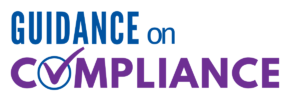Most skilled nursing facilities (SNFs) have Medicare provider numbers that allow them to treat and bill both Medicare Part A and Medicare Part B patients. Often the therapists who treat the short term sub-acute rehab patients develop such a good rapport with their patients that the patients want to return for continued therapy after they are discharged home.
Should the SNF provider allow patients to come from the community into the SNF for outpatient therapy treatments? If so, should SNFs continue to bill under their Medicare provider number? This question has many implications and is a decision that should be researched by each provider, including legal review. There are state specific regulations that may impact a provider’s final decision of providing outpatient therapy at a skilled nursing facility.
What Are the Risks?
Whenever there is a change in a billing pattern, the Medicare Administrative Contractor (MAC) may identify this through data mining of codes being billed.
Treating outpatients and billing them through the SNF Medicare provider number may cause an increase in Part B CPT code utilization and trigger a review. Whenever there is a review, there is opportunity for information to be uncovered. Be prepared to have documents reviewed for both technical and medical necessity requirements.
If a provider decides to obtain a separate Medicare provider number for treating community outpatients, there are state specific requirements. These are listed in the State Operations Manuals (SOM) and are conditions of participation. The Conditions of Payment, related to Medicare rules and regulations for providing care that is medically necessary and skilled, are also still in enforcement.
The provider must become certified as an outpatient rehabilitation agency, either at a main location, or at an extension location. This requirement is the same whether the therapists are being furnished by a contract therapy provider, or if the therapists will be employees of the SNF.
Typical steps for obtaining a new Medicare number as an outpatient rehabilitation agency include:
- Obtaining a National Provider Identifier (NPI) number
- Checking the state specific website for requirements for becoming a rehabilitation agency in your state for forms that need to be completed and submitted
- Completing the CMS enrollment forms for either a primary site or extension site. The primary practice site form is the CMS-855A enrollment form and it is usually submitted to the MAC.
- Completion of the CMS-855A form and receipt of the new Medicare number must occur prior to any outpatients being treated at the site
- The MAC notifying the regional offices (ROs) and the state agencies (SAs) after it has verified the information on the Form CMS-855A.
- CMS sending a notice letter with the effective date to the rehabilitation agency if approval is granted
- Receipt of the approval letter before the outpatient rehabilitation agency can see patients
Preparing for Survey by Your State Agency
While the provider is waiting for the Medicare number, there are critical steps to prepare for survey and to ensure that the criteria for opening a rehab agency are met. The criteria, listed in 42 CFR Par 485, Subpart H, Appendix E of the State Operations Manual (SOM) and sections 2290-2306 of the SOM, all need to be met prior to treating any patients.
As per 2298C, the SA will perform an onsite survey of the rehabilitation agency to evaluate each requirement and standard identified in the Conditions of Participation at each site. The agency should be prepared to have the surveyor review required information in the following areas:
- Compliance with Federal, State and local laws
- Governing Body and Administrator roles
- Personnel and Patient Care Policies
- Plan of Care and Physician Involvement
- Physical Therapy and Speech Therapy Services requirements
- Contracts for staff (if applicable)
- Clinical Records
- Physical Environment
- Infection Control
- Disaster Preparedness

